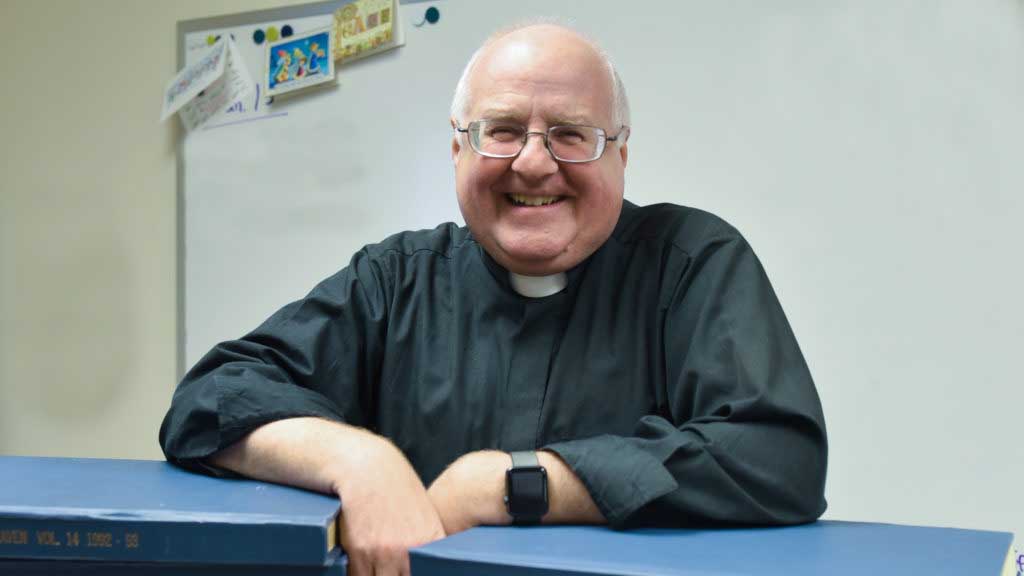
by Father Mark Goldasich
Welcome to Laetare (“Rejoice”) Sunday, the midpoint of the Lenten season.
As I look back over the first three weeks of Lent, I’ve got some reasons to rejoice. I’ve done well on keeping meatless Wednesdays (and Fridays, of course), reading eight pages a day in a Lenten book, sending a donation each week to a charity and not buying anything except groceries.
That being said, the most important of my Lenten resolutions — doing one hour a day of organizing and decluttering — I’ve failed at . . . miserably. As in, I’ve yet to do anything on it. I’ve even broken up the task into three 20-minute sessions — one each morning, afternoon and evening. Yeah, didn’t help.
I’ve concluded that I simply don’t wanna. Because it seems overwhelming and difficult, I’d rather just avoid it.
Due to my inertia, this haunting tale from “The Three Edwards” by Thomas Costain keeps popping into my head:
Raynald III, a 14th-century duke in what is now Belgium, was grossly overweight. His Latin nickname was “Crassus,” which means “fat.”
His younger brother Edward, revolting against Raynald’s rule, captured but didn’t kill him. Instead, he built a room around Raynald in the Nieuwkerk castle and promised that he could regain his title and property when he left the room.
This wouldn’t have been difficult for most people, since the room had several windows and a door of near-normal size, none of which was locked or barred. The problem was Raynald’s size; to regain his freedom, he needed to lose weight.
Edward knew his older brother well. Each day, he’d send a variety of delicious foods into the room. Instead of dieting his way out of this prison, Raynald gained more weight.
When Duke Edward was accused of cruelty, he had a ready answer: “My brother is not a prisoner. He may leave when he so wills.”
Sadly, Raynald stayed in this room for 10 years and wasn’t released until Edward was killed in battle. By then, his health was so ruined that he died within a year — a prisoner of his own appetite. (Story adapted from “1001 Illustrations That Connect,” edited by Craig Brian Larson and Phyllis Ten Elshof.)
Isn’t this a great illustration of sin? Especially during this season of Lent, we have the means to escape our “prisons” through the sacrament of reconciliation and our Lenten disciplines of prayer, fasting and almsgiving. Like Raynald, however, we prefer to persist in maintaining — or worsening — the status quo, even though we know it’s not good for us.
By the grace of God, all is not lost. I refuse to give up on myself or this resolution, not while there’s still half of Lent to go. I’ve started with a prayer of thanksgiving to God for the clutter — that I’m blessed to have so much more than I need and can share my bounty with those who have so little. And now, when that “prison” of avoidance rises within me to zap my motivation, I’ve been repeating this phrase from Paul’s Letter to the Philippians: “I can do all things through Him who strengthens me” (4:13).
Knowing that I was going to write about this, the Holy Spirit must have pushed me to do 20 minutes of organizing this morning, and I can feel a couple more of those sessions in me for later today.
Oh, by the way, a couple of wonderful friends have heard of my failure at this Lenten resolution and have offered to come and help. I’m thinking seriously of swallowing my pride and embarrassment and taking them up on their offer . . . maybe by Holy Week?

